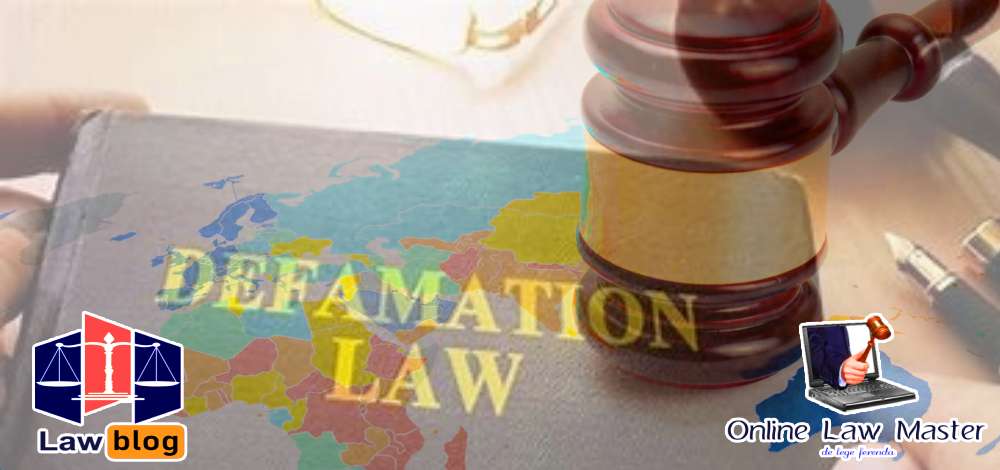
INTRODUCTION
1.1. Private international law(PIL)
In near history, private international law has developed as a system. Not only judicial decisions but also continental thoughts have contributed largely in moulding this division of law. Before any discussion on issues of Private International Law, it is essential to elaborate on its historical development. In the 19th century, with the development of international trade, contract law became prominent to fill the loopholes and it developed in parallel. However with the development of contract law and technology cross border transactions increased in number, along with the development, several cross border legal issues arose. Therefore private international law was established to fill these ambiguities. With the technological revolution, tort law has responded for certain issues arose in that legal arena. Further it is noteworthy that there are likewise certain sorts of tort – nuisance, negligence, defamation, and so forth. This at that point makes one issue, “should a similar rule in deciding the relevant laws apply without regarding the type of tort?” Another matter to be considered is that utilization of a foreign law may prompt obligation being forced for torts that are obscure in the domestic jurisdiction. In this paper it will be specifically discuss the new developments of private international law to address the legal issues in defamation cases. In this article cross border defamation will be referred to as CBD and private international law as PIL hereinafter.
1.2. Defamation
“Defamation is a spoken or written expression which is deemed to harm the reputation of an individual and proved to be false”. In general there are two forms of defamation as slander and libel. Before the dawn of social media, there were two modes of communication as spoken and written. Slander as defamation in spoken form and libel in written form. But there is a dilemma whether to what category to be considered where defamatory statements made through television, radio or the internet. Generally, it is the duty of the judge, to decide which sort the defamation fits into. Defamation is a fascinating arena. Considering defemation it affects two essential human rights:
• Freedom of expression.
• protection of reputation
These specific rights are ensured to be vital under internationally.
Defamation law is a legal territory where countries are frequently defensive than they concern in to other different arenas. Since defamation can be considered as an infringement of a right it ought to be featured the way that, there are numerous universal instruments that perceive the presence of rights identifying with identity.
For instance ICCPR Art. 17 stipulates that
“No one shall be subjected to arbitrary or unlawful interference with his privacy, family, home or correspondence, nor to unlawful attacks on his honor and reputation.”
Universal legal instruments leaves to the individual countries and States to “give meaning” to the specific rights and does not contain any system of sanctions. Therefore it is obvious that there are certain loopholes in international law which should be taken into account when considering issues like defamation.
1.3. Change with the development
In the recent history, social media, for example, Facebook, Instagram and Twitter have turned into an indispensable piece of many individual’s lives. Information gathered by International Telecommunication Union (ITU) elucidates the fact that 47% of the World’s populace, approximately three thousand four hundred and eighty million individuals, approached the web in 2016. Like past changes in correspondences innovation, social media and online networking poses a legal challenge. Could existing laws be moulded to this contemporary setting, or to ascertain whether it posture new issues which needs new solutions? This article analyzes one part of the inquiry through an investigation of PIL matters of what law applies (or ought to be applied) to CBD asserts via internet as well as newspapers. CBD raises a scope of issues, including PIL questions with respect to which courts ought to arbitrate cases and to which substantive law.
It should be noted the fact that being a global village the whole world communicate and share information by one single click. Not only newspaper articles but also statements made in speeches, posts shared in social medias are accessible to every individual in the whole wide world with the usage of auto mobiles. Therefore once a defamatory statement is made there is a huge possibility to make a vast damage to the reputation of affected party. Since this can be happened from one individual of one country to other in another state. There’s a dilemma as to how to raise actions and claim damages for such an action. For this issue article 12 of Universal Declaration on Human Rights emphasizes the importance of reliable protection as:
“No one shall be subjected to arbitrary interference with his privacy […] everyone has the right to the protection of the law against such interference of attacks.”
The issue of observing the fitting appropriate law on account of cross-border torts is to a great particularly problematic. The explanation for this is at an exceptionally fundamental state of the actualities of a tort related claim there are numerous connecting factors, for example, the place of the tort, the domicile of the parties and the nationality, and so on. To add to this fundamental matter, on account of CBD an additional issue of deciding the real jurisdiction where the tort was conferred emerges. Likewise there are additionally wide assortments of tortious issues that may emerge – confinement, damages, and so on. The inquiry that at that point emerges is whether a similar law ought to represent these issues.
A broad arrangement of solutions has been utilized by different countries so as to manage this matter and even among these solutions there were impressive advancement over some stretch of time. This paper likewise examines different “choice of law rules” took after across jurisdictions – lex fori, lex loci delicti, double actionability rule, and so on –focusing specifically on the position in UK, Canada, Australia.
2. Stages of tort related claims
2.1. Jurisdiction (forum domicilli)
It is mentioned that paying little respect to their individual nationality individuals domiciled in a Member State must (“should”), be sued in the courts of that specific Member State,.(Arts. 4 and 5). It ought to be noted that Art. 4 accommodate the international and domestic jurisdiction is to be chosen as to residential law. (forum domicilli) considering exceptional jurisdictional principles for tort without a court chosen by the parties and then again to the ground of the respondent’s residence, the courts of where such detrimental occasion happened or will happen likewise have international jurisdiction to hear the case (Art. 7(2) Brussels I bis). As per this provision an individual domiciled in a Member State might be sued in another Member State in issues identifying with tort, delict or quasi delict, in the courts for where the harmful occasion happened or may happen. In certain instances, the European Court of Justice (ECJ) shed light on Brussels I Regulation’s article 5(3) in connection to jurisdiction on account of multistate Internet defamation.
2.2. Choice of law
The scholar Gabriel Castel elucidates “rules of jurisdiction and of choice of law address different concerns and that the test of place of publication should not always be used for both purposes.” If reasonableness directs that the offended party ought to have the capacity to pick the courts where publication occurred, the choice of jurisdiction ought to not consequently warrant the utilization of the law of that forum which will parallel support forum shopping. In this manner, choice of law principles should center decisively around the law of where the reputation and dignity of the offended party has been generally harmed. . However the selection of the law which is governing is conditioned by connecting factors as mentioned below.
2.2.1. Place of tortious act occurred (Lex loci delicti)
In determining the place of tort, most frequently the best approach is considering the place of downloading, hearing and reading the defamatory statement by another party. This specific place can be considered as the place where plaintiff suffers for the harm for his reputation. The offended party must prove to convey the publication which the respondent has proceeded to convey the defamatory explanation to “at least one person other than the plaintiff.” The Defamation just solidifies at whatever point, and wherever, such announcement is heard, perused, or downloaded by an outsider or a third party.
2.2.2. Lex fori
The utilization of lex fori is somewhat shortsighted further direct by way of there is no compelling reason to figure out where the specific tortious act happened. Then again this could work to the hindrance of the litigant as the offended party may then continue forum shopping – picking a forum that suits to him. “Contrarily, if the specific act conferred isn’t a tort under lex fori, however it is under ¬lex loci delicti – the offended party does not endure as regardless of whether he can’t effectively acquire a claim from the forum state.”
Considering the recent developments occurred, there is an inquiry whether there is an exceptional choice of law manages for online defamation. The matter of the relevant law for online defamation accordingly seems to boost specific issues, in spite of the fact that it maybe stays challenged whether these issues are truly novel or just prevailing issues opened up in an online setting which makes cross-border appropriation of material both more predominant and hard to control. Support for this thought may be found with regards to the EU runs on ward under the Brussels I Regulation, where the ECJ has surely built up an extraordinary administer for online defamation. As per the Regulation, procedures in tort might be brought forward, against an EU domiciled defendant in either the place of the wrongful act which took place or the place of direct damage, and in the defendant’s residence.
3. Actions of different jurisdictions on legal issues in defamation
3.1. United Kingdom
The double actionability rule which was set down on account of Phillips v. Eyre can be considered as the settled standpoint in Common law on account of cross border torts, and as pertinent to defamation related cases even now. For this situation Phillips brought a case with respect to the issue against Eyre for false imprisonment and assault in English Court. Eyre argued the performance of the Jamaican Parliament repaying him for anything done amid the suppression period as a safeguard.
The fundamental rule in Phillips v. Eyre was set down as follows: generally, so as to establish a suit in England for a wring asserted to have been submitted abroad, two conditions must be satisfied. To begin with, the wrong should be of such a character, to the point that it would have been actionable if conferred in England; secondly, the act must not have been legitimate by the law of where it was done. The Double Actionability Rule was in this way settled as the general run identifying with cross border torts. “The two factors of the rule are:
(a)As a tort in England the act must be actionable;
(b) The act must be non-justifiable by the law of where it was granted”.
Be that as it may, Boys v. Chaplin case moreover settled an exemption to the general rule of double actionability, by method for “making the awarding of reliefs a procedural issue”. In this manner “the judgment of the Boys v. Chaplin case ousted the law of the forum of place of tort and reestablished the law of forum similar to the granting of damages and other reliefs were concerned”. This position was later elucidated to some degree on account of Red Sea Insurance Co Ltd v. Bouygues where it was held double actionability, accommodating an exemption in proper cases, where the offended party could depend on either lex loci delicti or lex fori exclusively for his or her claim to be actionable. Therefore it is obvious the fact that the law is developing by filling gaps and loopholes in the defamatory issues in PIL.
3.2. Canada
Law related to Defamation is based on the English common law within the territorial limits of Canada.
The crux of the tort of defamation has continued constant though the jurisprudence and provincial legislation have evolved in their own distinctive ways. David Potts conveys the fact that “a defamatory statement is one which has a tendency to injure the reputation of the person to whom it refers.” In common law Canada, the notion of publication is firmly attached to the idea of the place of tort, which, for choice of law purposes, has been characterized by the Canadian Supreme Court as where the wrongful action happened as that place may assume an essential part for assurance of the jurisdiction of courts and the choice of the appropriate law.
3.3. Australia
Recently, the utilization of Australian PIL to torts has experienced impressive change and considerable transformation particularly with connection to defamation. The choice of law rules for torts by and large experienced considerable change because of John Pfeiffer Pty Limited v Rogerson and Regie Nationale des Usines Renault SA v Zhang. Accordingly, choice of law principals in Australia for both interstate and international torts is for the most part administered by the law of the place of the tort (or lex loci delicti). Besides every Australian state and domains at last established significantly uniform defamation laws before the end of 2006 following thirty years of calls for changes,. Appropriately, these specific laws endorse choice of law rules for international publications. Moreover, the common law, including its choice of law rules, has been left in place for cases including distributions happening outside of Australia. These different advancements have widely changed the private worldwide law structure for defamation procedures in Australia.
4. Conclusion
Law for defamation in the area of tort has created through legal and statutory change and through its later European harmonization, This isn’t only on the grounds that it has demonstrated hard to concede to another rule, yet in addition on the grounds that there remain questions about the propriety of embracing any rule which approaches decision of law of defamation simply as an issue of PIL. Indeed, even offline, territorial regulation of defamation has demonstrated exceedingly risky, regardless of whether the tort is resolved to be situated at the place of wrongful act and where the damage occured. The expansion of technology to this issue makes complex practical problems. The practical issues are caused by the expanded access which people pick up to a global audience, through an inter-connected medium which urges an easygoing way to deal with correspondence, and which may guarantee secrecy or anonymity.
Without a doubt, as individuals progressively work online, it might be that utilization of local procedures to associate their conduct to territorial legal orders turns out to be progressively troublesome and arbitrary. With all these facts it is obvious that there are certain developments of private international law through judicial and statutory reform so as to address the legal issues in defamation cases. With the continuance of technological developments private international law arena can be considered as a developing law yet, it needs to be reformed since there are certain ambiguities which are needed to be addressed in relation to defamation.
References
- https://www.lawontheweb.co.uk/
- International Covenant on Civil and Political Rights (United Nations General Assembly, resolution 2200 A (XXI) of 16 December 1966).
- González (2016), p. 316. Also note that ICCPR is an instrument from the UN and that the ICJ does not accept applications from individuals.
- 2016 World Population Data Sheet, p. 1, Population Reference Bureau
- ICT Facts and Figures 2016, p. 1 & 4. International Telecommunication Union (ICT) is a specialized agency of the United Nations responsible for issues that concern information and communication technology.
- Similar rights can be found in the European Convention on Human Rights (Art. 8) and in the Charter of Fundamental Rights of the European Union (Arts. 1, 3 & 7).
- Palsson (2008), p. 105f.
- eDate Advertising Gmbh v X and Olivier Martinez, Robert Martinez v MGN Limited, C-509/09
- J-G Castel, “Multistate Defamation: Should the Place of Publication Rule Be Abandoned for Jurisdiction and Choice of Law Purposes?” (1990)
- 14 Editions Ecosociété Inc v Banro Corp, 2012 SCC 18, [2012] 1 SCR 636 at para 34 [Editions].
- Collins, Dicey & Morris, at 913
- Bier v Mines de Potasse [1978] QB 708
- Grant v Torstar Corp, 2009 SCC 61, [2009] 3 SCR 640 at para 28.
- Martin George, “Hartley on the Problem of ‘Libel Tourism’” (19 July 2010), online: Conflict of Laws.net <http://conflict oflaws.net/2010/hartley-on-the-problem-of-libel-tourism/>.
- Matthew Collins, The Law of Defamation and the Internet (Oxford: Oxford University Press, 2001) Defamation legislation of the provinces and territories modifies the common law
- David A Potts, Cyberlibel: Information Warfare in the 21st Century? (Toronto: Irwin Law, 2011) at 101.
- Tolofson v Jensen; Lucas v Gagnon, [1994] 3 SCR 1022 [Tolofson].
- Boys v Chaplin [1971] AC 356 19. Red Sea Insurance Co Ltd v Bouygues SA [1995] 1 AC 190

